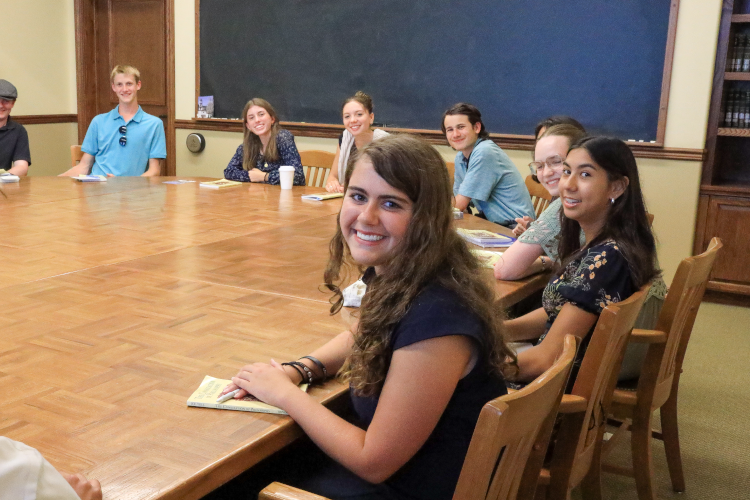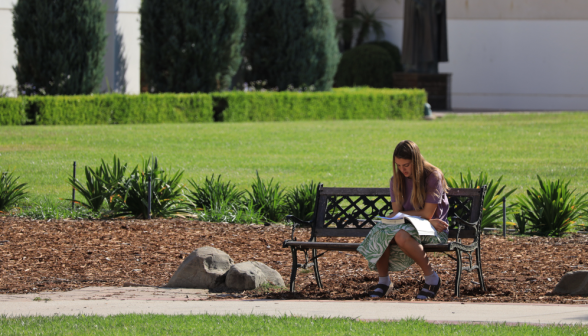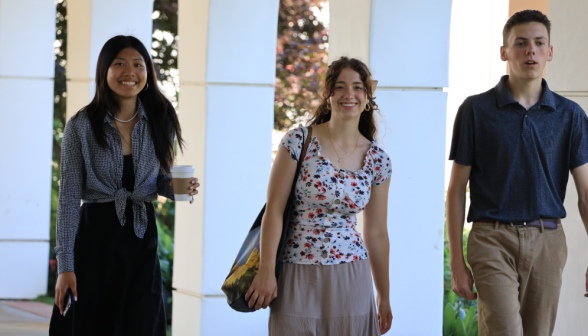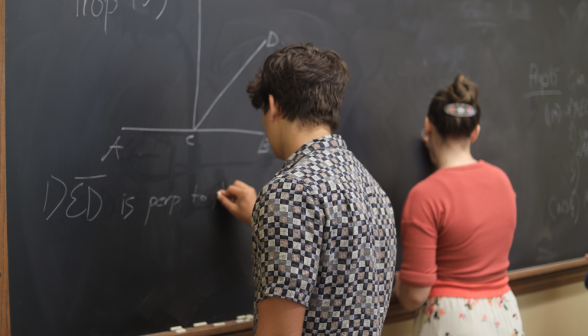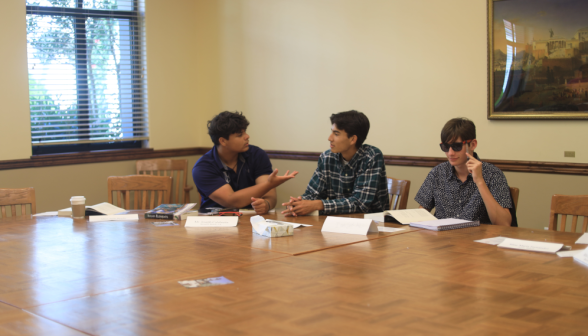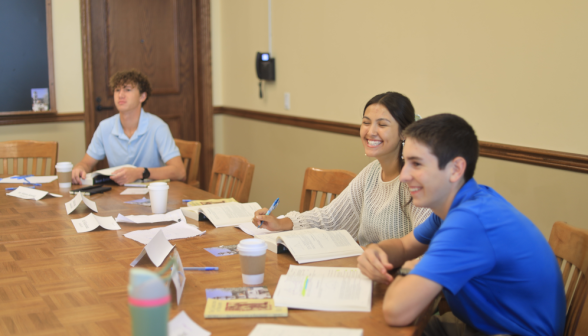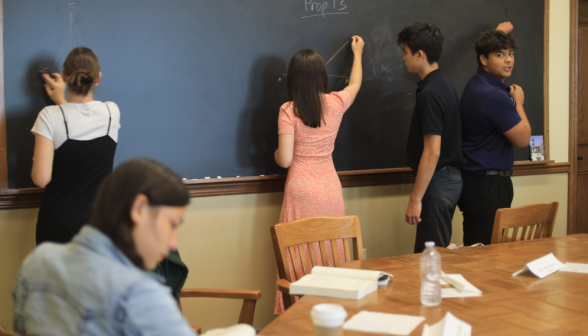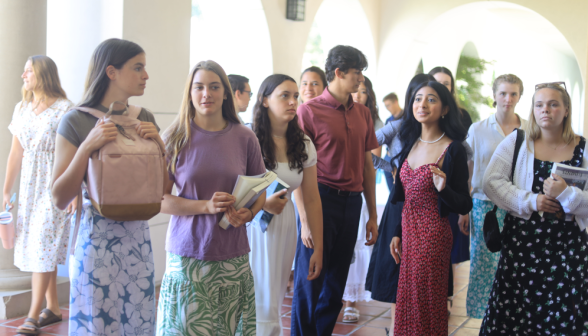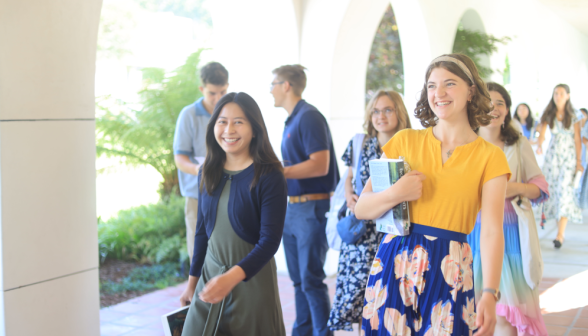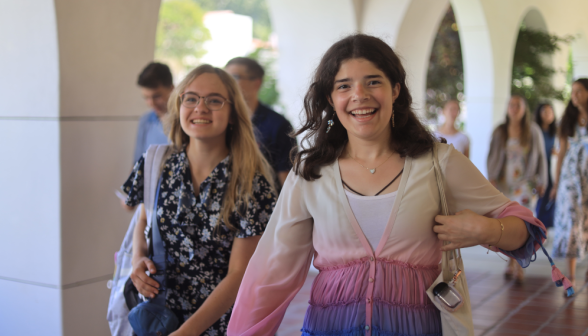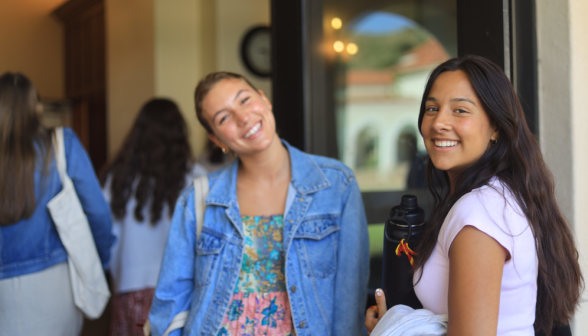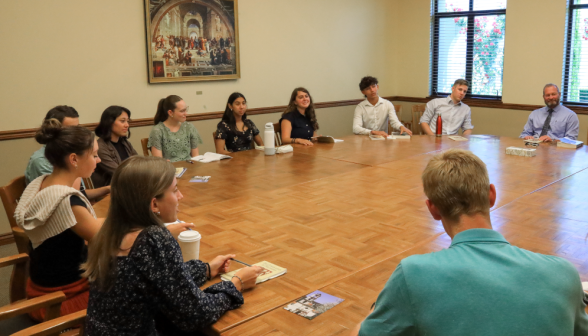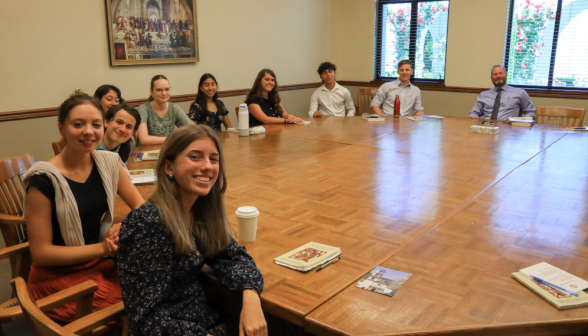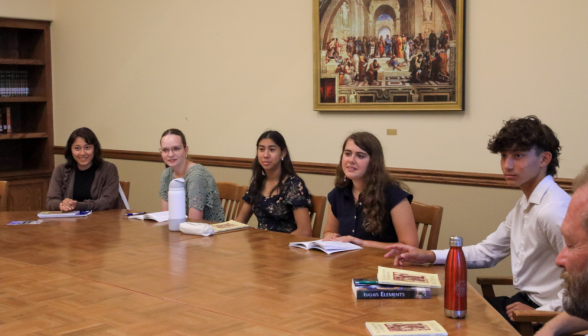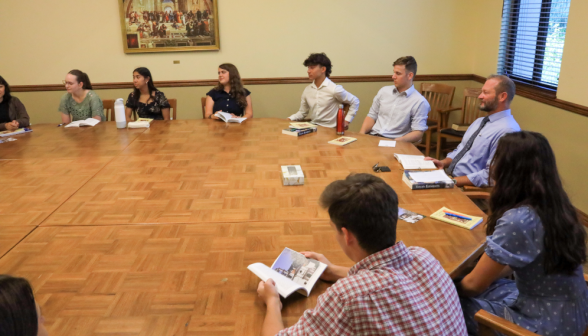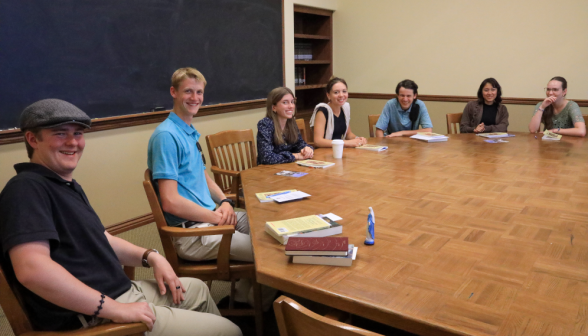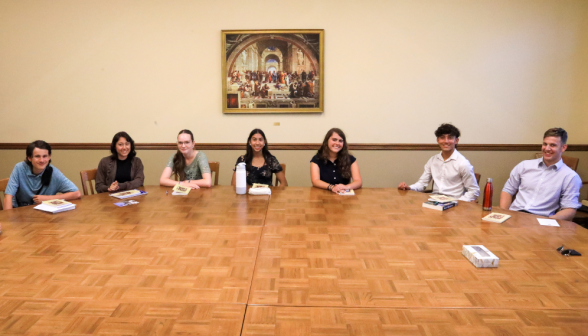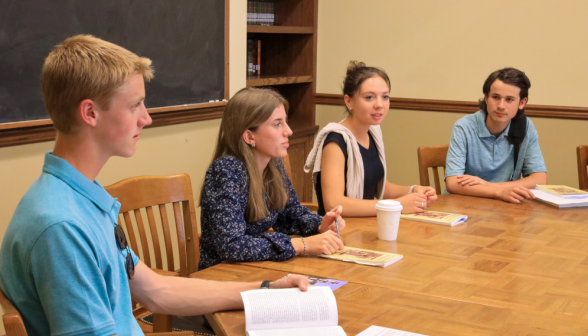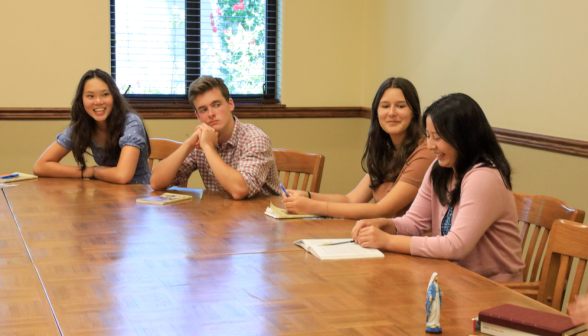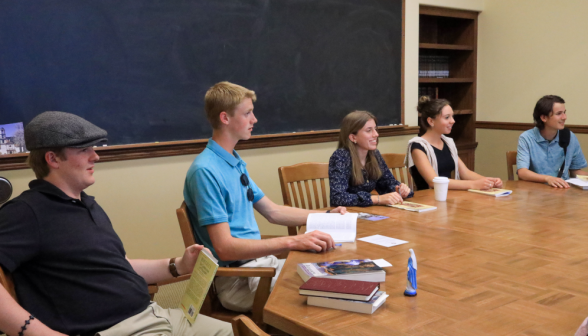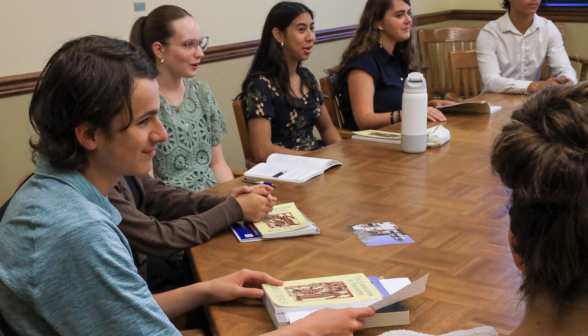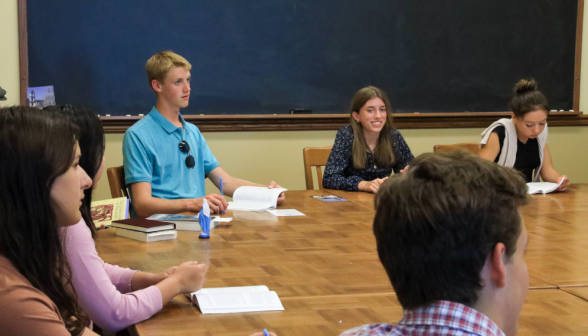Today’s propositions in question were numbers 11, 13, and 15 from the first book of the Elements, which allow students to construct perpendicular lines and establish truths about supplementary and vertical angles. The demonstrators helped their classmates come to a common understanding of these arguments, showing how Euclid’s conclusions follow directly from his principles. “Euclid has made me like math more than I ever did before,” says student Luke B. “I like how it’s logical, and how we reach conclusions by understanding more basic ideas and building off of them.” The students will be able to use the building blocks discovered in class today to reach new knowledge in tomorrow’s final Euclid class.
Finished with Euclid at least for the moment, the students had an hour to fill before lunch. Most attended Mass in Our Lady of the Most Holy Trinity Chapel, but a few took the opportunity to attend a barre class led by prefect Claire Rea (’25), who previously taught programmers how to surf. “It was great to brush up on technique together with girls who share the same love for dancing,” said Clare.
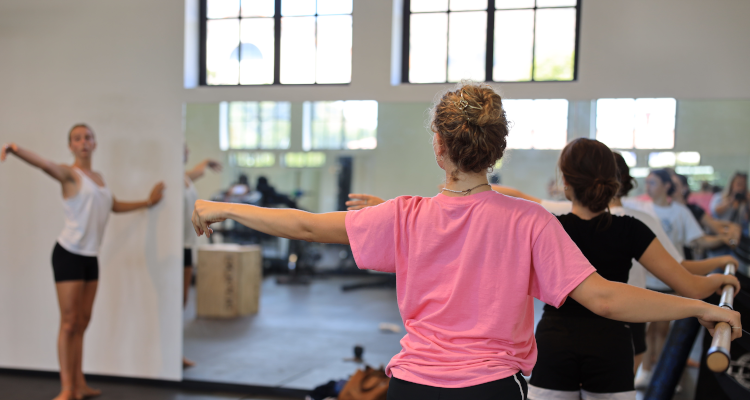
The students returned to their classrooms after lunch to finish their discussion of The Consolation of Philosophy, delving into the topics of Divine Providence, fate and chance, the foreknowledge of God, and the freedom of the human will. In the text, Lady Philosophy assures the despondent Boethius that God’s knowledge of His creation in no way binds man to act from necessity or makes God the author of men’s evil deeds. She defends free will against every objection, but stresses God’s care and governance over His creation. The student pondered her arguments and reflected, together with Boethius himself, whether they satisfy human reason and console the human heart.








